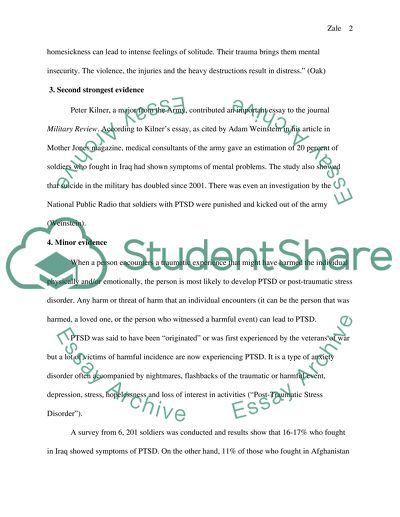Cite this document
(“PTSD Essay Example | Topics and Well Written Essays - 2750 words”, n.d.)
PTSD Essay Example | Topics and Well Written Essays - 2750 words. Retrieved from https://studentshare.org/miscellaneous/1549717-ptsd
PTSD Essay Example | Topics and Well Written Essays - 2750 words. Retrieved from https://studentshare.org/miscellaneous/1549717-ptsd
(PTSD Essay Example | Topics and Well Written Essays - 2750 Words)
PTSD Essay Example | Topics and Well Written Essays - 2750 Words. https://studentshare.org/miscellaneous/1549717-ptsd.
PTSD Essay Example | Topics and Well Written Essays - 2750 Words. https://studentshare.org/miscellaneous/1549717-ptsd.
“PTSD Essay Example | Topics and Well Written Essays - 2750 Words”, n.d. https://studentshare.org/miscellaneous/1549717-ptsd.


